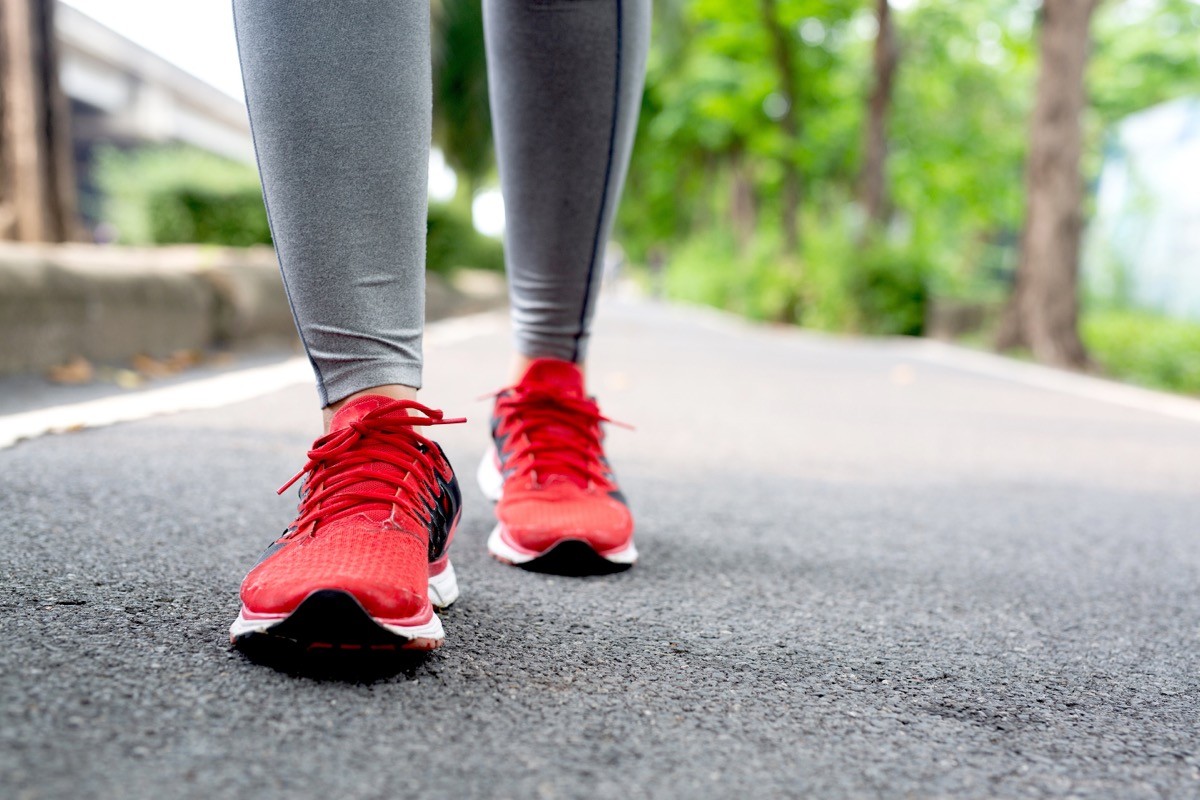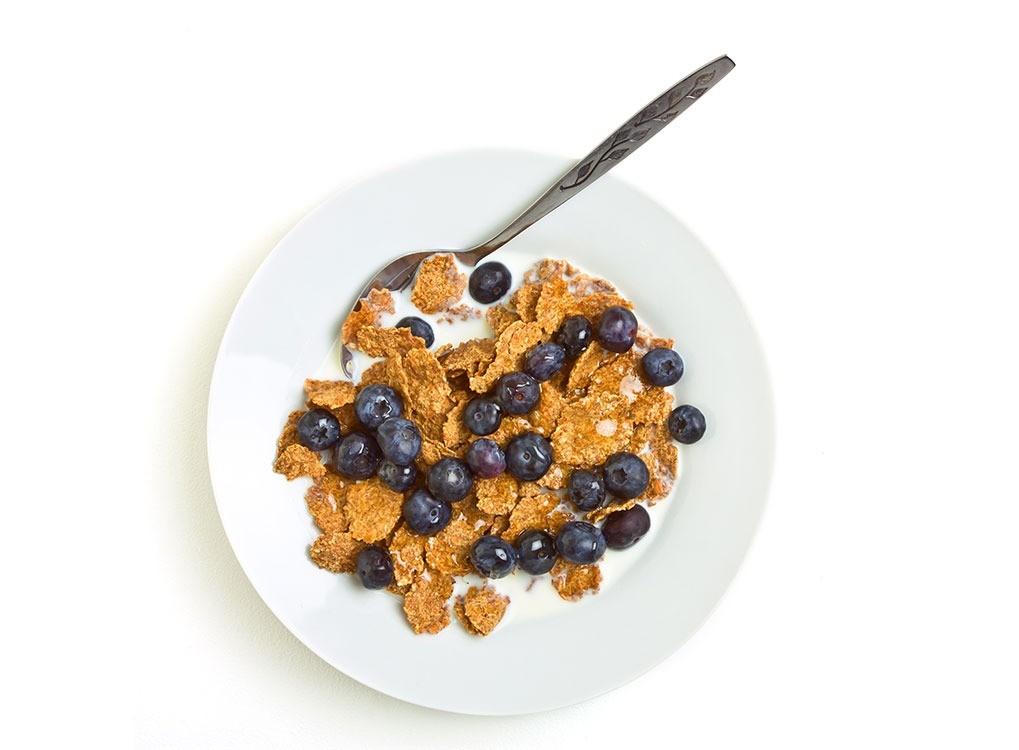Top Tips to Conquer the Mid-Afternoon Slump and Stay Energized All Day

Are mid-afternoon slumps ruining your day? “Our body’s natural circadian rhythm, the 24-hour internal clock that helps regulate our biological processes, sends signals to the brain during the day to keep us alert, awake and sharp,” behavioral sleep specialist Anthony Reffi, PhD, tells Henry Ford Health. “Around lunchtime, there’s a dip in these signals that can make us feel sleepy.” So how can you beat that slump and continue to have a productive day? Here’s what the experts recommend.
RELATED: 8 Reasons You Feel Tired All the Time.
Don’t Skip a (Healthy) Breakfast

Make sure you enjoy a healthy breakfast with protein, fat, and fiber to help give you continuous energy throughout the day. “The best way to keep your energy level at peak performance is to start the day with breakfast,” says the University of Rochester Medical Center (URMC). “Skipping any meal affects your ability to focus. This makes it harder to solve problems. Missed meals also mean you miss out on nutrients. Often, people who skip meals end up overeating later.”
Caffeine Intake

Don’t rely on caffeine to get over the afternoon slump. “If we’re coping with the post-lunch dip by drinking caffeine, our body is going to require more caffeine over time to get the same effect,” Dr. Reffi says. “And that’s going to negatively affect our ability to sleep at night.”
Get Good Sleep

If you’re not getting enough good quality sleep at night time (7 hours is ideal), you could feel it the next day. “If you have insufficient sleep at night, sleep pressure will have built to even greater levels the next day,” Jamie Zeitzer, PhD, tells Woman’s World.
Listen To Music

Try playing your favorite song to get over the slump. “Music has an incredible impact on our mood and can absolutely transform your energy levels even in a short space of time,” nutritionist and mental health advocate Rosie Millen tells The Independent UK. “Just popping in your earphones and blasting your favorite song alters brain waves and improves cognitive performance.”
RELATED: 6 Reasons You Feel Tired But Can’t Fall Asleep.
Go For a Walk

Taking a brisk walk after lunch is a great way to get an energy boost. “If you go for a walk outside, you’re not only getting exercise, which wakes up body and mind, but you’re also exposing yourself to fresh air and natural light,” Dr. Reffi says.
Energy-Boosting Snack

A healthy snack can give you a much-needed burst of energy. “For a quick burst of fuel, choose foods high in complex carbohydrates,” says URMC. “These are healthful sources of energy that digest the quickest. Go for whole-grain breads and cereals, fresh fruits, vegetables and vegetable sticks, pasta, beans, or brown rice. Even spring rolls or burritos can do the trick. To hold hunger at bay for longer, choose protein foods that take longer to digest. These include nuts, peanut butter, and cheese. “
Do Something Fun

“Fun, interesting and creative activities can serve as mental rejuvenation to counteract the afternoon slump,” Jenny Woo, PhD, tells Woman’s World. “When we engage in an enjoyable or intriguing activity, our brain releases dopamine, enhancing mood and boosting focus. These activities promote increased blood flow and neural activity in brain regions linked to attention and cognitive processing, leading to heightened attentiveness and decreased drowsiness.”